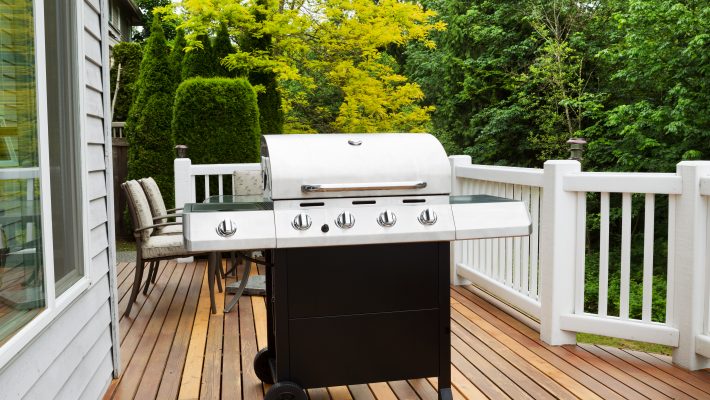While old homes have a lot of character, they can also have their share of problems that new homes do not. Newly constructed homes may lack some of the decorative touches that were common in the past, but they make up for any lack of old-world charm through their contemporary styles, energy efficiency and budget-friendly warranties.
Plus, there is also nothing quite so exciting as putting your own personal stamp on a newly constructed home and making it your own. Once you’ve decided to go in that direction, the next choice you have to make is whether you want to purchase a spec home or go with a custom build.
What’s the Difference Between a Spec and a Custom Home?
Generally speaking, a spec(or “speculative”) home is built by a developer or builder without a specific buyer in mind. Instead of being constructed based on a pre-existing contract with a buyer, the builder makes all the decisions regarding the home’s design, layout and features as a way to show off their work.
In comparison, newly constructed homes are all one-of-a-kind projects. Typically, the buyer starts with a basic floor plan, but the architect and builder can modify virtually every aspect of the home and custom design its features to reflect a specific buyer’s personality, wants and needs.
What Are the Benefits of a Spec Home?
Are you uncertain if a spec home is right for you? It can help to assess the pros and cons before you choose this housing option. Here are some of the most important factors to consider:
Quick Move-In
Speculative homes are great for those seeking immediate occupancy. Since these homes are pre-built by the developer and are either fully complete or mostly finished when they’re put up for sale, they’re move-in ready for the new homeowner. This can be particularly appealing if you and your family have time-sensitive housing needs.
Affordability
Spec homes can be more cost-effective than their custom counterparts. Developers usually leverage the economy of scale to streamline their building processes. That allows them to pass on significant cost savings to buyers. If you’re looking for modern luxury at a reasonable price, the affordability factor can be significant.
Less Decision-Making Stress
When you’re designing a home from the bottom up, there are endless decisions that have to be made – from the floor design to the composition of your countertops. For some homebuyers, the prospect of all that can be overwhelming. Spec homes, by design, come with predetermined finishes, layouts and basic aesthetics. This can be a relief for those who prefer to avoid the minutiae of customizing every detail and would rather focus on moving in and settling down.
What Are the Drawbacks of a Spec Home?
With all their benefits, spec homes aren’t entirely without their drawbacks. These include:
- Limited Customization
The most obvious “con” when it comes to spec homes is the limited opportunity for personalization. Some builders may offer minor modifications – such as a choice of flooring or the color of the walls – but significant changes to the layout or design are often off the table. If you have a distinct vision of your dream home, this lack of customization can be a dealbreaker.
- Quality Concerns
Spec homes are sometimes accused of being “cookie-cutter” properties that lack the kind of craftsmanship and attention to detail that can be found in custom-built homes. They’re often constructed very quickly, with an eye toward broad market appeal. That can lead to the use of less-expensive materials that may not suit your preferences.
What Are the Benefits of a Custom Home?
It’s equally important to take a good look at the benefits and drawbacks of a custom home before you commit yourself in that direction, too. They include:
- Tailor-Made to Preference
The standout advantage of custom homes lies in the builder’s ability to tailor the design to your specific preferences. From the layout to the finishes, every detail is subject to your approval. This high degree of personalization ensures that the final product meets your vision of the ideal home.
- Quality Assurance
With a custom home, you have more control over the selection of materials and the construction process, whether that means using reclaimed wood on the floors or changing the whole layout of the kitchen. This control can translate into a higher level of quality, as you can personally oversee the choices made during the building process.
- Long-Term Satisfaction
The customization can also translate into more personal satisfaction with the finished home. You also have the joy of knowing that your home is unique, reflecting your own taste and lifestyle, rather than fitting into someone else’s preconceived notions of what today’s buyers want. If you keep your long-term goals in mind, that can make you happier with your living space in the future.
What Are the Drawbacks of a Custom Home?
There’s a flip side to every decision you have to make, so even a custom-built home has to be considered in light of the potential problems. These include:
- Delayed Occupation
Unlike spec homes, which are usually ready for occupancy right away, custom homes require a more time-consuming process. Planning, design, obtaining permits, and the construction itself all contribute to an extended timeline. If you’re in a hurry to move in, the custom home route may not be the most practical choice.
- More Expense
Customization comes at a price. The freedom to personalize your home according to your preferences often translates into higher costs. Custom homes are generally more expensive due to increased labor, design, and material costs associated with tailoring the home to your unique specifications.
What’s the Bottom Line?
Basically, making this decision requires that you consider your choices in terms of three major concerns:
- Your Budget: If this is your primary concern, a spec home may be the best solution. If your budget has some flexibility, the extra expense of a custom build may not be an issue.
- Your Timeline: If getting into your new location right away is a priority due to circumstances like a job change or a new baby’s arrival, a spec home is the practical direction to make. If you can stay where you are for a while or have temporary alternative housing, a custom home is easier to manage.
- Your preferences: If you want control over every aspect of your future home, a custom home is likely a better fit for your needs.
Making a decision like this can leave you full of angst, but experienced guidance from your local real estate professional can help.
amanda.phillips@talktotucker.combill.ingram@talktotucker.combrad.layton@talktotucker.comeditors-pickerina.pribyshchuk@talktotucker.comfeaturedlloyd.zimmerman@talktotucker.commark.callahan@talktotucker.commary.layton@talktotucker.compriscila.hale@talktotucker.comterri.mcgraw@talktotucker.com




